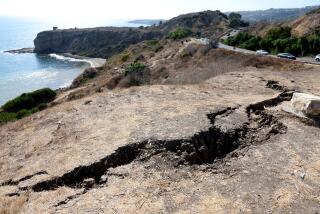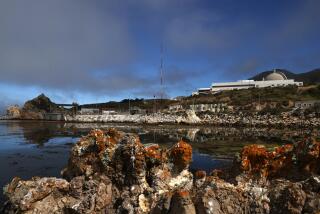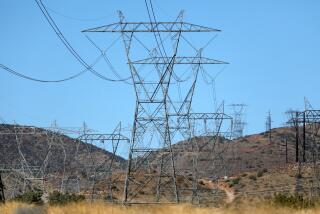Ratepayers file new suit over deal to close San Onofre nuclear plant
A group of mainly San Diego County activists is suing Southern California Edison Co. and state electric power regulators over more than $3 billion in costs to close the San Onofre nuclear power plant.
The complaint filed in U.S. District Court in San Diego accuses Rosemead-based Edison, the California Public Utilities Commission and two of its members, President Michael Peevey and Michael Florio, of illegally collecting money from approximately 17 million utility customers in Southern California.
The payments were used to pay $700 million for failed equipment to produce steam to run turbines that generate electricity.
Failure of the steam generators in January of 2012 forced Edison executives to permanently close San Onofre, located near San Clemente, in June of last year.
The legal move is the latest in a series of protests by some ratepayer groups over a PUC proposed settlement.
The controversial agreement, which could come before the five-member commission as early as next week, would divvy up the costs of shuttering the massive, 2,200-megawatt plant, which produced enough power to run approximately 2.9 million homes in Southern California.
The proposed settlement would seek $3.3 billion over 10 years from ratepayers and $1.4 billion from Edison stockholders.
Collecting the money to pay for a cold San Onofre violates the so-called government takings clause of the 5th Amendment to the U.S. Constitution, said Michael Aguirre, the plaintiff’s attorney. The takings clause prohibits governments from taking people’s property without providing them with “just compensation.”
Making customers pay for the failed steam generators and the nonworking plant constitutes a lack of just compensation, Aguirre said in his brief to the court.
Representatives from both the PUC and Edison declined to comment on Aguirre’s lawsuit, saying they had not seen the legal filings.
Calculating who pays for the defunct nuclear power plant and how much each party pays can’t be decided until the regulators at the PUC hold a hearing, Aguirre said.
The inquiry should determine whether Edison acted “reasonably” in designing, buying and installing the steam generators, which were turned off after one of the units developed a small radiation leak.
Aguirre said he opted to go to federal court because of what he called “a masquerade ball” at the PUC. Critics say the PUC commissioners are too close to Edison and other regulated, for-profit utilities.
Commissioners and staff, he said, “are going to have to defend their behavior — no longer as both the judge and jury — in U.S. District Court.”
Twitter: @MarcLifsher
More to Read
Inside the business of entertainment
The Wide Shot brings you news, analysis and insights on everything from streaming wars to production — and what it all means for the future.
You may occasionally receive promotional content from the Los Angeles Times.











